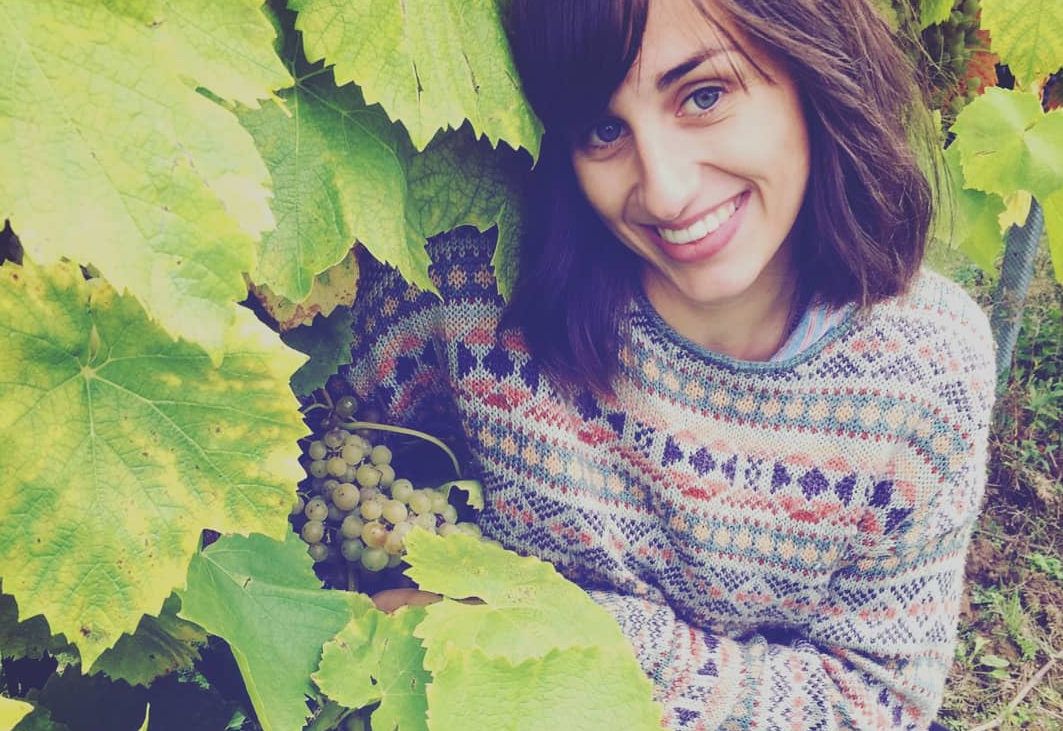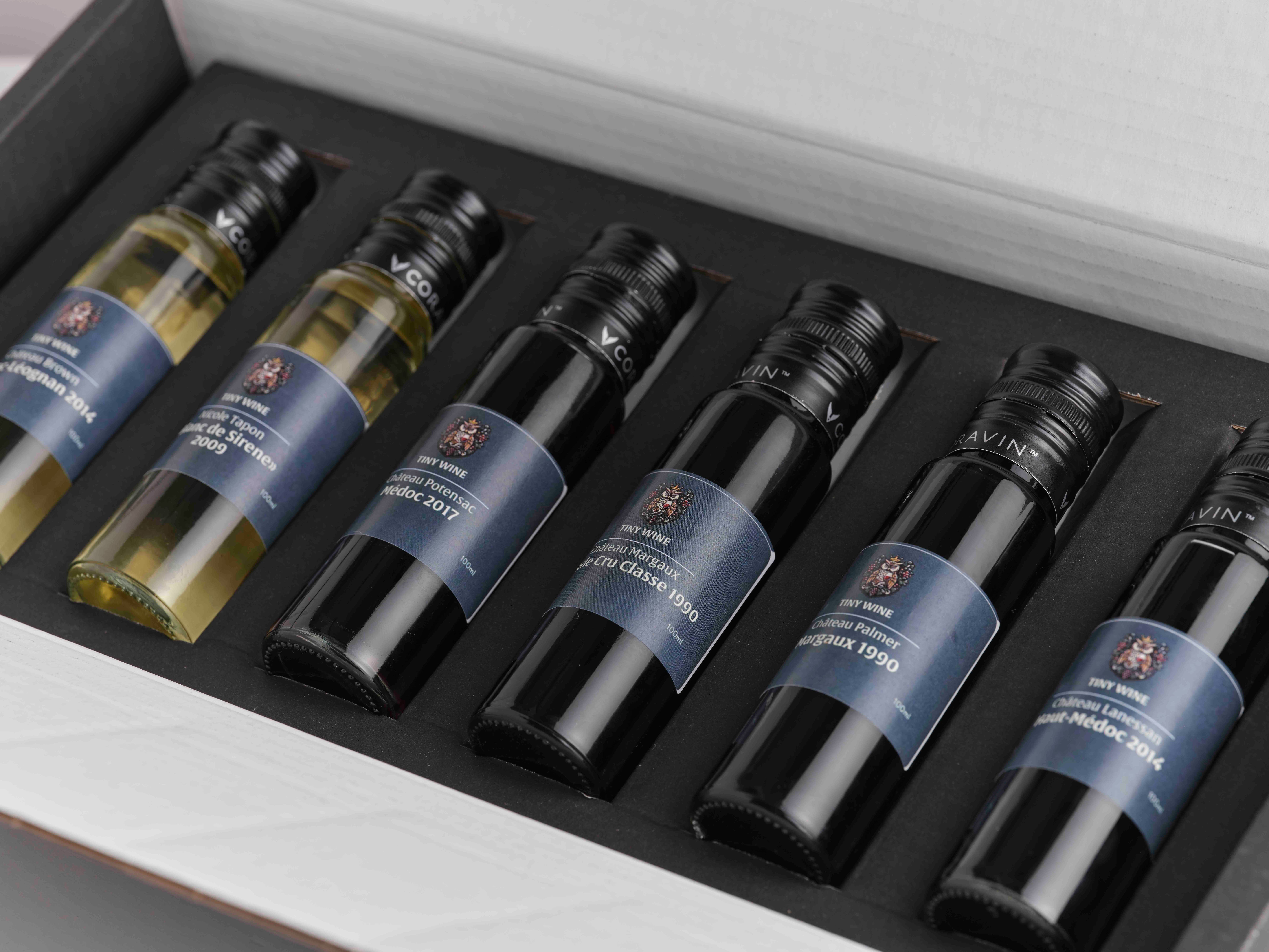If you had told Lauren Brewer as an 18-year old she would be graduating with a MSc in Viticulture and Oenology she would not have believed you, but now that she is on course to do just that she could not be happier.
Tell us about yourself and your background and career to date?
I’m Lauren, a 26 year-old wine lover from Dorset. Growing up i needed to be constantly active (nothing has changed there), I somewhat rushed my decision aged 17 to head to Bournemouth University to study BSc Exercise Science. Unfortunately, I realised teaching people how to squat was not for me, leading to various bar jobs, which I enjoyed, but found the late nights were not sustainable. This was followed by a season as an outdoor activities instructor and eventually led to a role managing an online store selling exercise equipment.
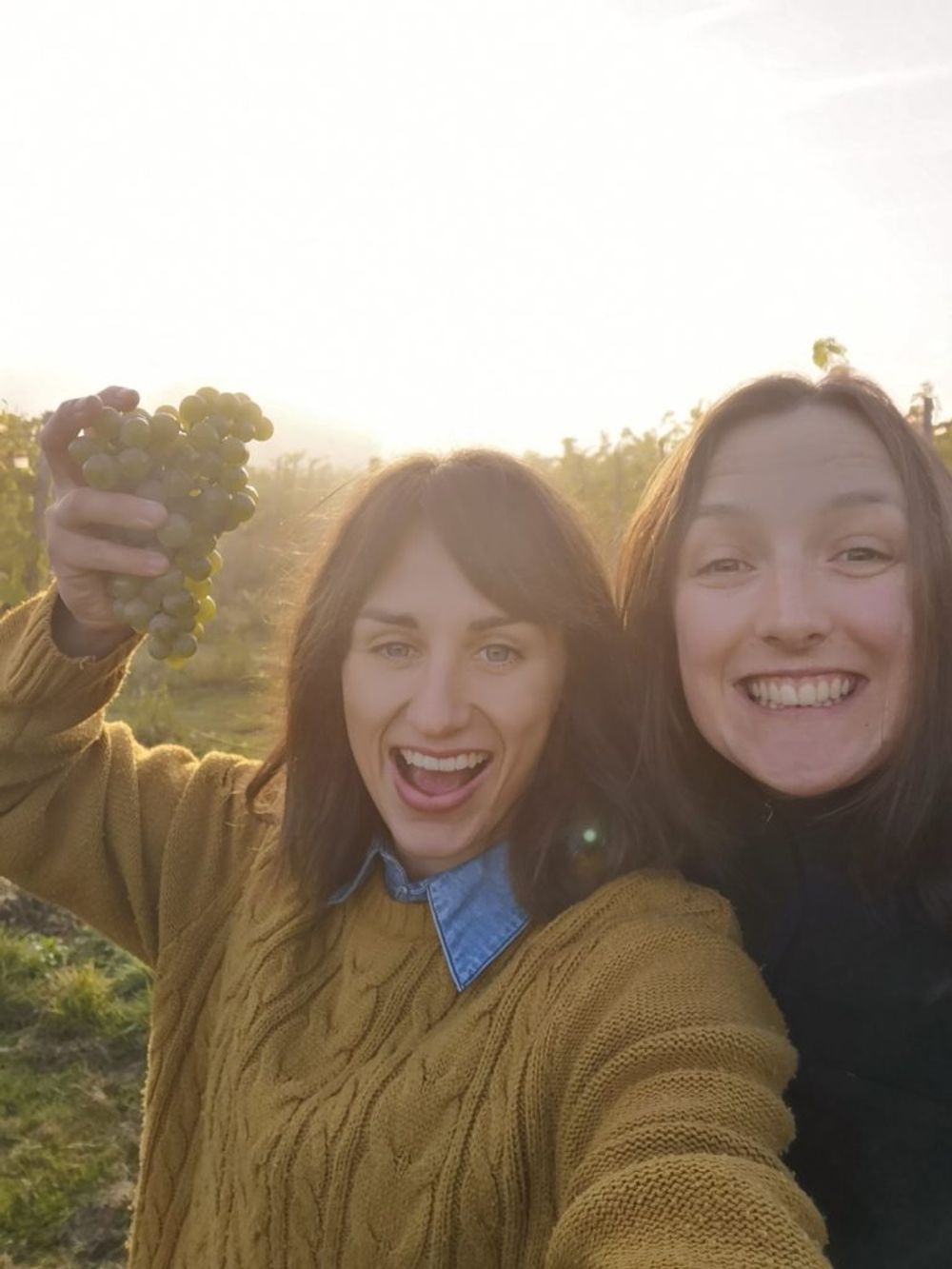
Picking grapes is all about teamwork…
How and why did you get interested in wine industry?
Whilst working in online retail management, selling products that I wasn’t passionate about and for a company that didn’t motivate me, I was desperate for a change. It just so happened I lived about 10 doors down from Majestic Wine, Poole and after popping in for a bottle of Prosecco one Friday night, I thought, what a fun job this would be!
Starting out at Majestic barely knowing what a Sauvignon Blanc was, and having started my wine journey drinking two for £6 bottles of Merlot from the off-licence, I honestly didn’t think a few years down the line I would have as much passion and excitement for the industry as I do now.
How and why did you want to do a course at Plumpton College?
The more I learnt completing the WSET level 3, the more I wanted to learn, and when I got a distinction in both the tasting and theory exams, I thought, I might not be bad at the whole wine thing! However, I’m one of those annoying people who needs to understand the ‘how’ and ‘why’ behind everything. So, not satisfied with reading about wines in textbooks, I wanted to learn exactly what goes into a bottle of wine and what makes every bottle unique. Cue Google searches for how to become a viticulturist or a winemaker…and of course Plumpton seemed like the obvious and best choice as the UK’s Centre for Wine Excellence!
What course are you doing and why?
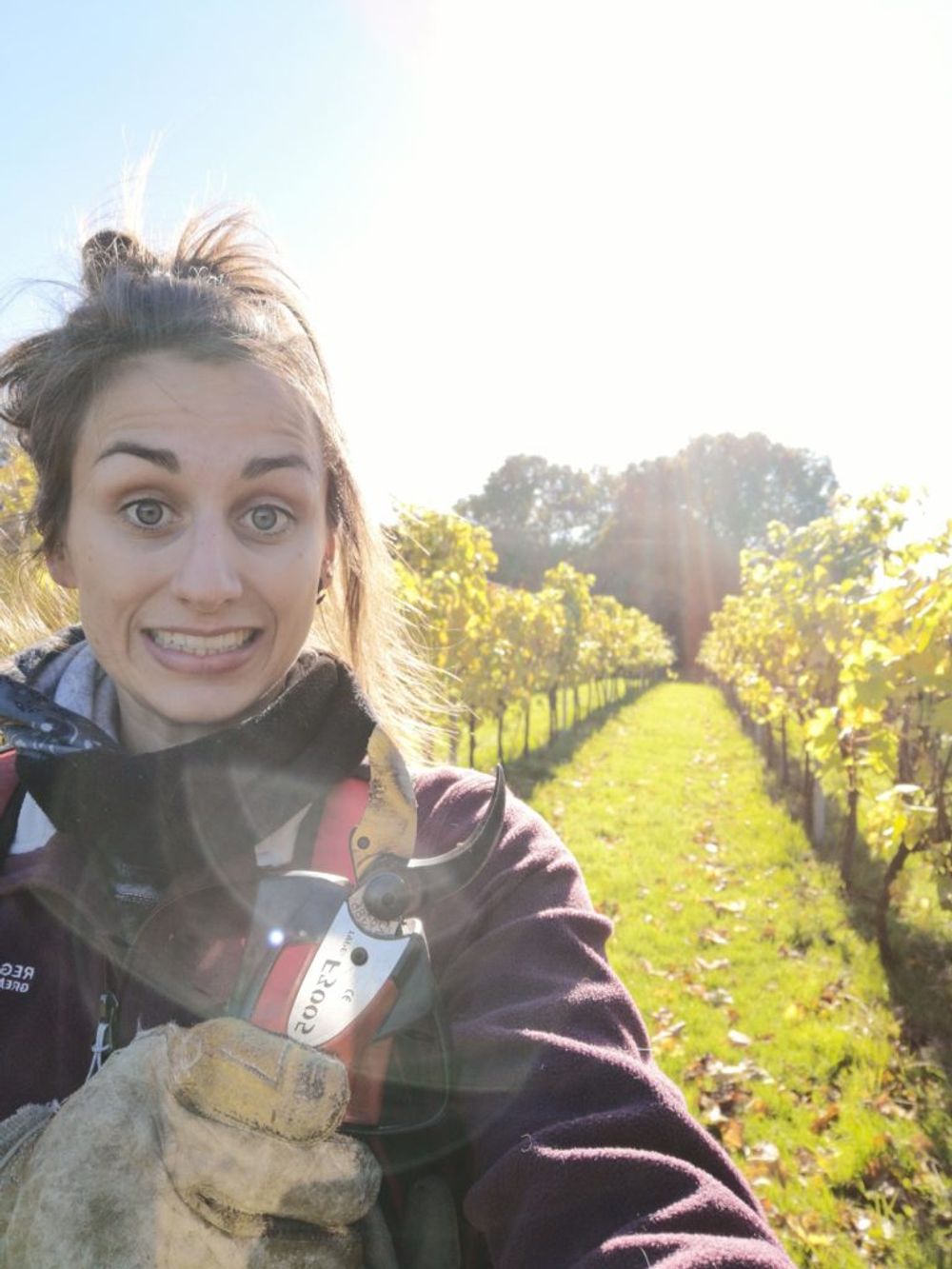
It’s also hard work…Lauren Brewer out doing her share of pruning
I’ve just completed the MSc Viticulture and Oenology course at Plumpton. Having previously completed a three year degree, I knew I couldn’t commit to the longer courses, so the 18 month master’s course seemed ideal, with the right level of study to build on my first couple of years in the wine industry. With lectures conveniently slotted into two full study days at the college, and the rest of the week left for research and assignment writing.
It also gives a good amount of flexibility for those that have other commitments in their lives. I chose to work part-time during the course at a local vineyard, which, although challenging alongside the course workload, gave me invaluable hands-on experience that made some assignments much easier.
What was the topic of your thesis?
The title of my thesis is ‘The effects of shoot topping during flowering on Pinot Noir yield components in a UK vineyard’.
Why were you interested in doing that?
During the various vineyard visits that were arranged by the college and whilst working at English Oak Vineyard in Dorset, the one topic that kept coming up in discussions was the weather. Every viticulturist would claim that the variable and unpredictable English weather was their biggest challenge, and the effect this has on yield volumes each year has a serious impact on the English wine industry’s viability. Therefore, anything that could possibly help increase vineyard yields, particularly in years where the weather isn’t going our way, must be worth looking into.
Shoot topping is the removal of the vine’s growing shoot tips (around 15cm is cut off). The theory is that removing this part of the vine during flowering helps improve fruit set. The growing shoot tip (apical meristem) is a big energy sink for the vine during the flowering period, and so removing it could help redirect energy supplies to the developing flowers instead, aiding fertilisation, meaning more flowers turn into berries. Meaning hopefully more fruit and more wine!
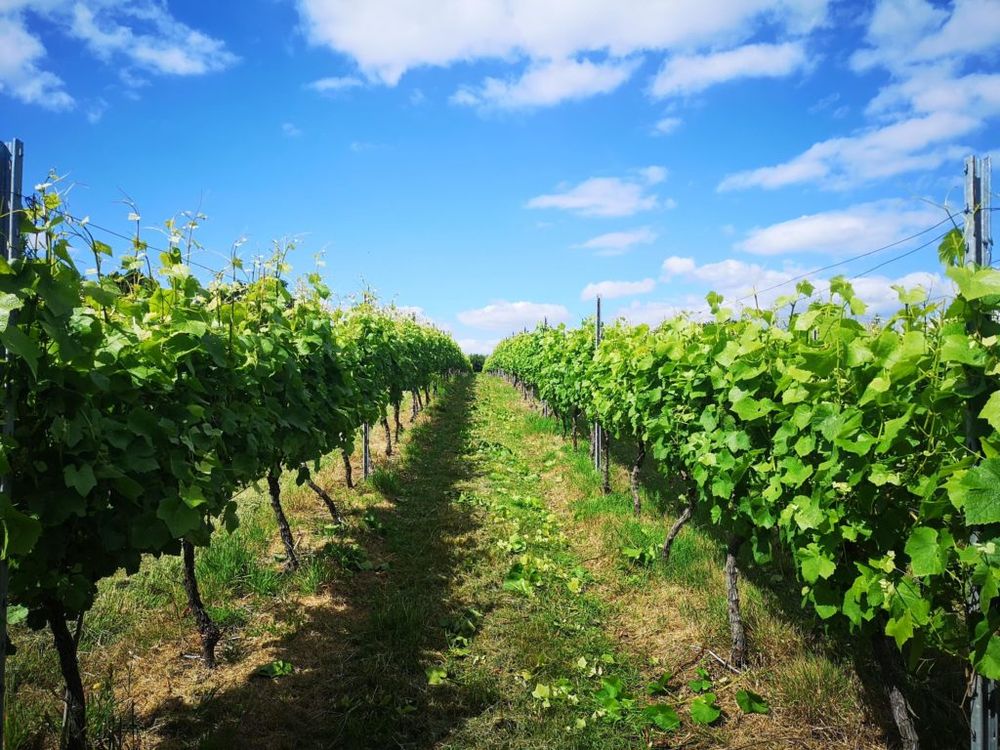
Some of Lauren Brewer project vines – control vines (untopped) on the left, topped vines on the right
What has the research involved and how have you gone about doing the project?
The Dorset vineyard where I was working very kindly allowed me to complete the project on 100 of their Pinot Noir vines. It involved labelling up the vines to select 50 treatment vines, which were to be topped during flowering, and 50 control vines, which were not to be topped until later in the season when the vineyard complete their usual summer pruning with a mechanical hedger to keep the vine canopy under control.
Various data was then collected and analysed using statistics software to see if topping during the flowering period had in fact had a significant impact on yield. This research is believed to be the first of its kind in the UK climate, so it was difficult to anticipate was the results might reveal.
What challenges have you had pulling it together?
The most challenging part was actually collecting the data. It was very labour intensive and included things like counting the number of flowers on an inflorescence (around 200 flowers on each one), repeat this 100 times in a row and you can see how it might be a struggle. Also, harvesting and weighing the yield of each of the 100 vines took a lot longer than expected. My advice to anyone taking on a similar project is to get lots of friends that are easy to bribe with free wine to come and help you with the tougher jobs.
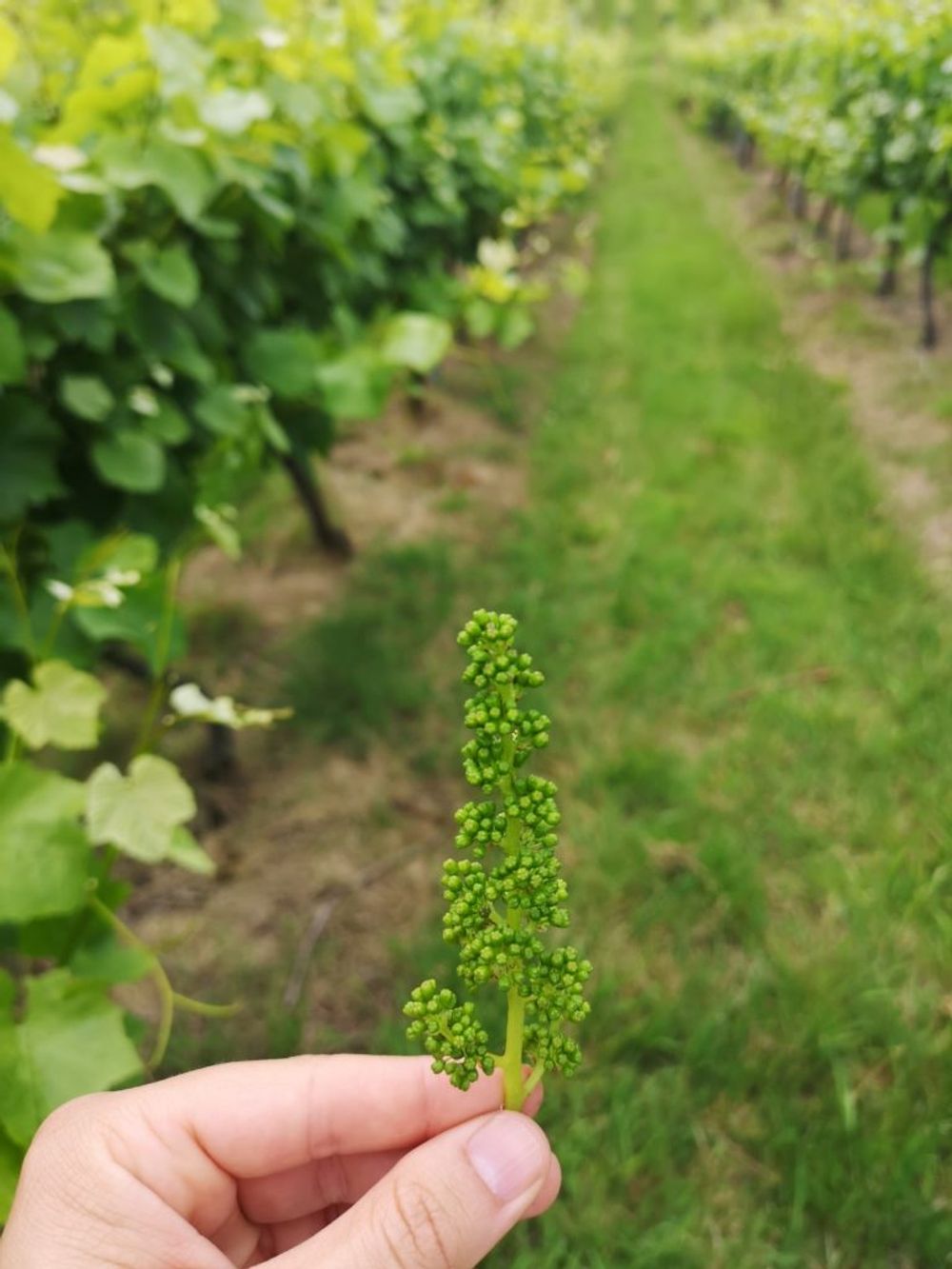
Flower counting during the project (1 inflorescence)
What do you hope your research will achieve?
Although the results showed that in this particular year, shoot topping didn’t significantly increase yield, there are many other factors that are at play. During the season of the study (2019) weather conditions were favourable in the vineyard and therefore results may be very different in another year where conditions are less favourable for the vines. More research is required for sure but hopefully this study can be used as a platform for future UK studies, in different seasons and on different sites, which may bring alternative results, leading to producers adopting shoot topping during flowering as a way of stabilising yield volumes of pinot noir in the UK.
How will you apply what you’ve learnt to your future career?
The project, and the course as a whole, has taught me to be innovative and creative when making decisions in the vineyard and winery. It’s good to experiment as you can always go back to basics if it doesn’t work out. As long as you work hard I don’t think you can go far wrong.
What’s the next step for you at Plumpton?
I will be awaiting my results now for my written dissertation for my project. I can safely say I will be drinking wine on results day (hopefully English sparkling wine).
What would you say to people looking to do a course at Plumpton? What do you need to understand to make the most of it?
I think you need to understand that the wine industry is a lifestyle choice. You need to be committed to the study and must be passionate about the industry, otherwise you won’t find it enjoyable. It will be hard work but worth it, as a career in wine has to be one of the most interesting and fun career choices out there.
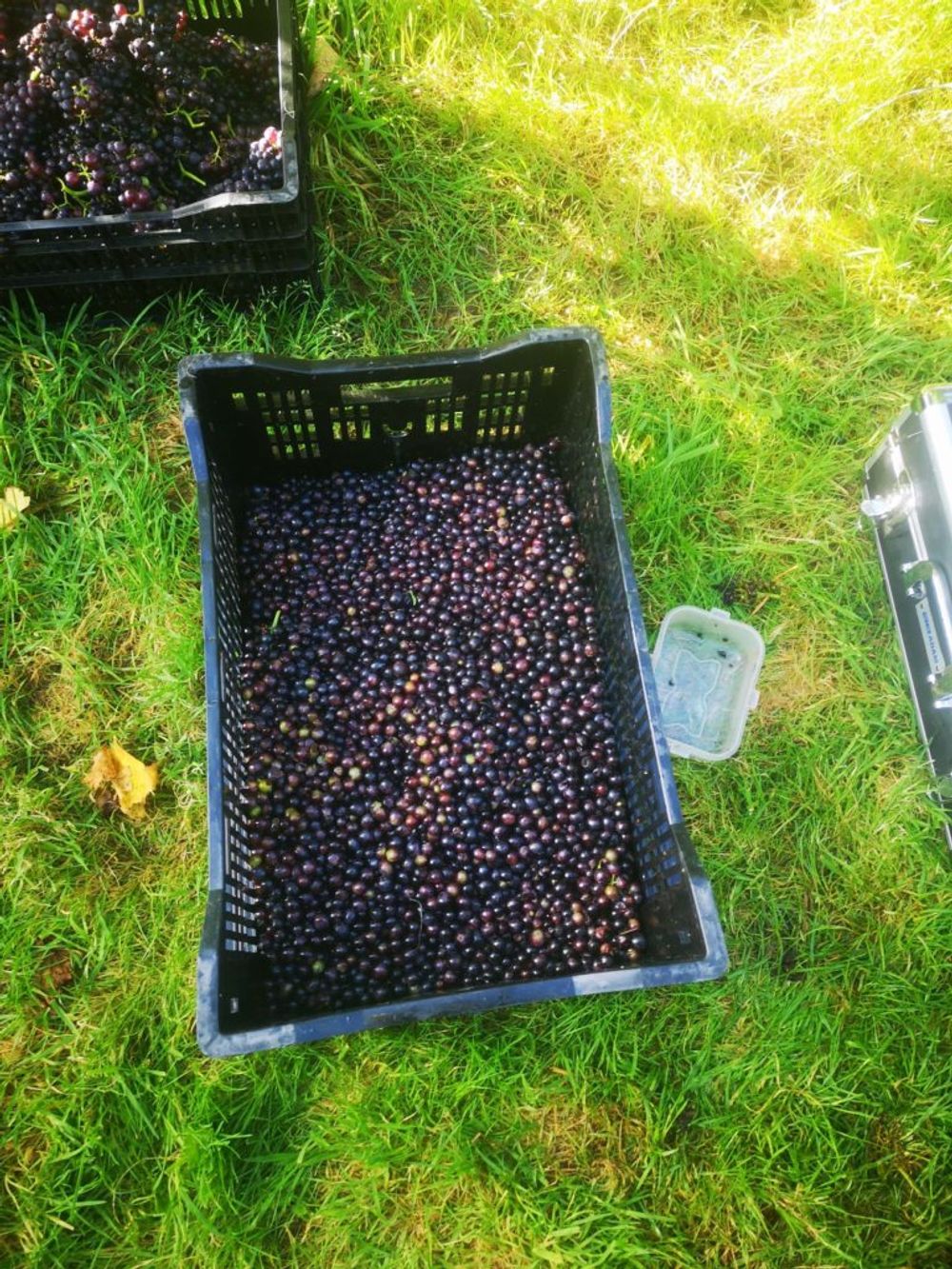
Counting and weighing berries for the master’s project
After Plumpton what are you hoping to do…career in wine or not and what sort of job?
A career in wine is absolutely what I’m hoping to do. I love talking about wine and getting other people excited about wine. I’m starting a winemaker position at a English Oak Vineyard in Dorset very soon which is going to be an exciting challenge for me. It will give me the chance to develop my practical skills in the winery, whilst keeping in touch with vineyard life.
Which countries and regions around the world have you visited and most liked?
The Champagne study trip as part of the master’s course was an amazing experience. The trip was heavily focussed on sustainability, a particular area of interest for me, and to visit a range of producers from small boutique wineries like Jean Jacquinot, to the prestigious Billecart-Salmon, gave a great perspective on what the region is doing to improve sustainability. The Champagnes we had the opportunity to try made the experience unforgettable, with the Billecart-Salmon Cuvee Louis Blanc de Blancs 2006 being a highlight for me.
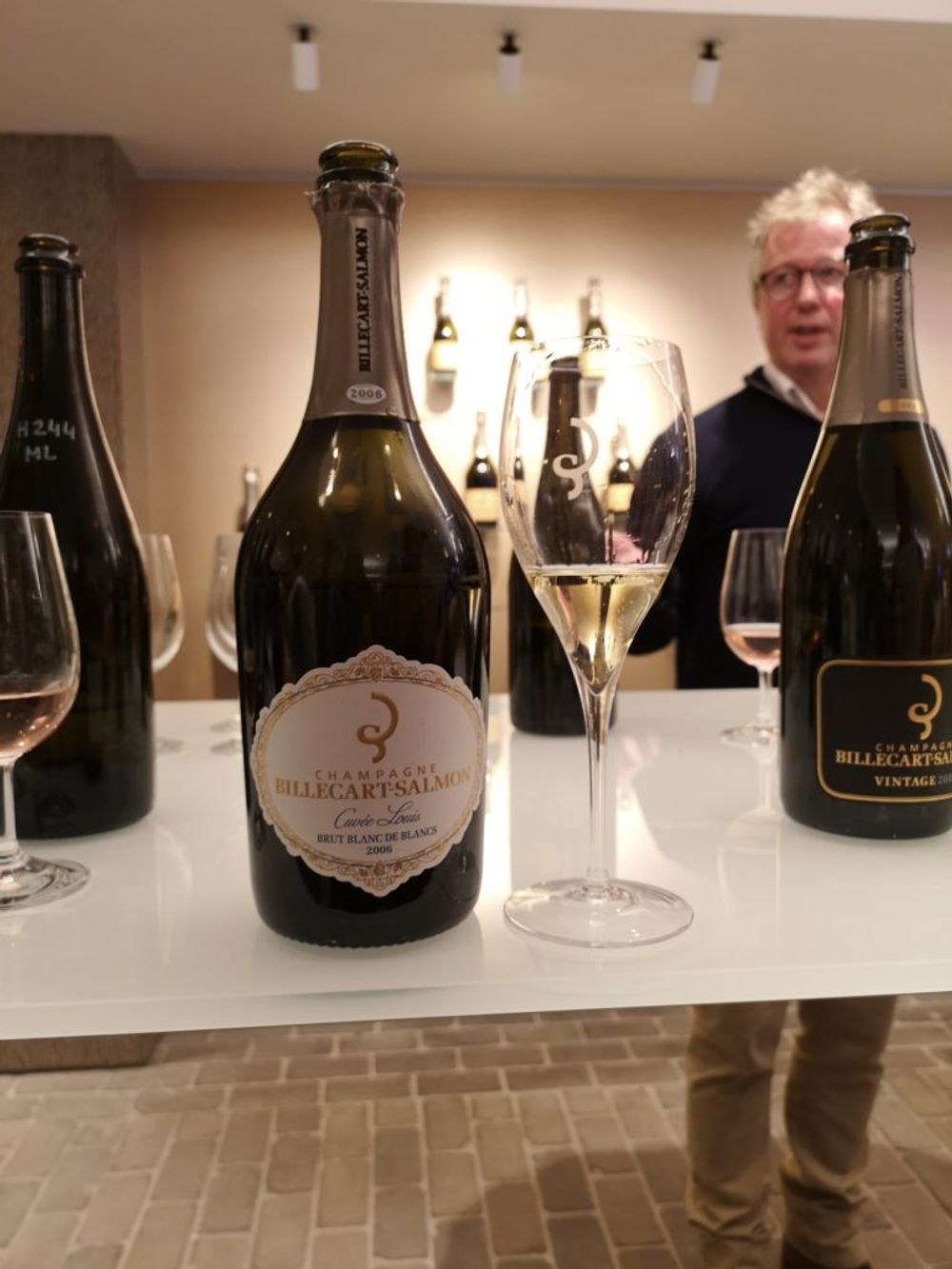
Tasting Billecart-Salmon Cuvee Louis Blanc de Blancs 2006 on the Plumpton Champagne study trip
Which countries and regions do you most want to go to and why?
I would love to go to California and do a road trip through the region visiting the vineyards and also some of the national parks. I love the bold style they adopt there and the fact there’s less tradition and more innovation and young, first generation producers experimenting with techniques.
Your favourite kinds of wine and why?
It has to be a traditional method sparkling wine, like Cava. You can get so much complexity and fantastic quality wines for such good prices.
What are you eating with it and where?
Fish and chips on a summer evening in the garden. Perfect.
